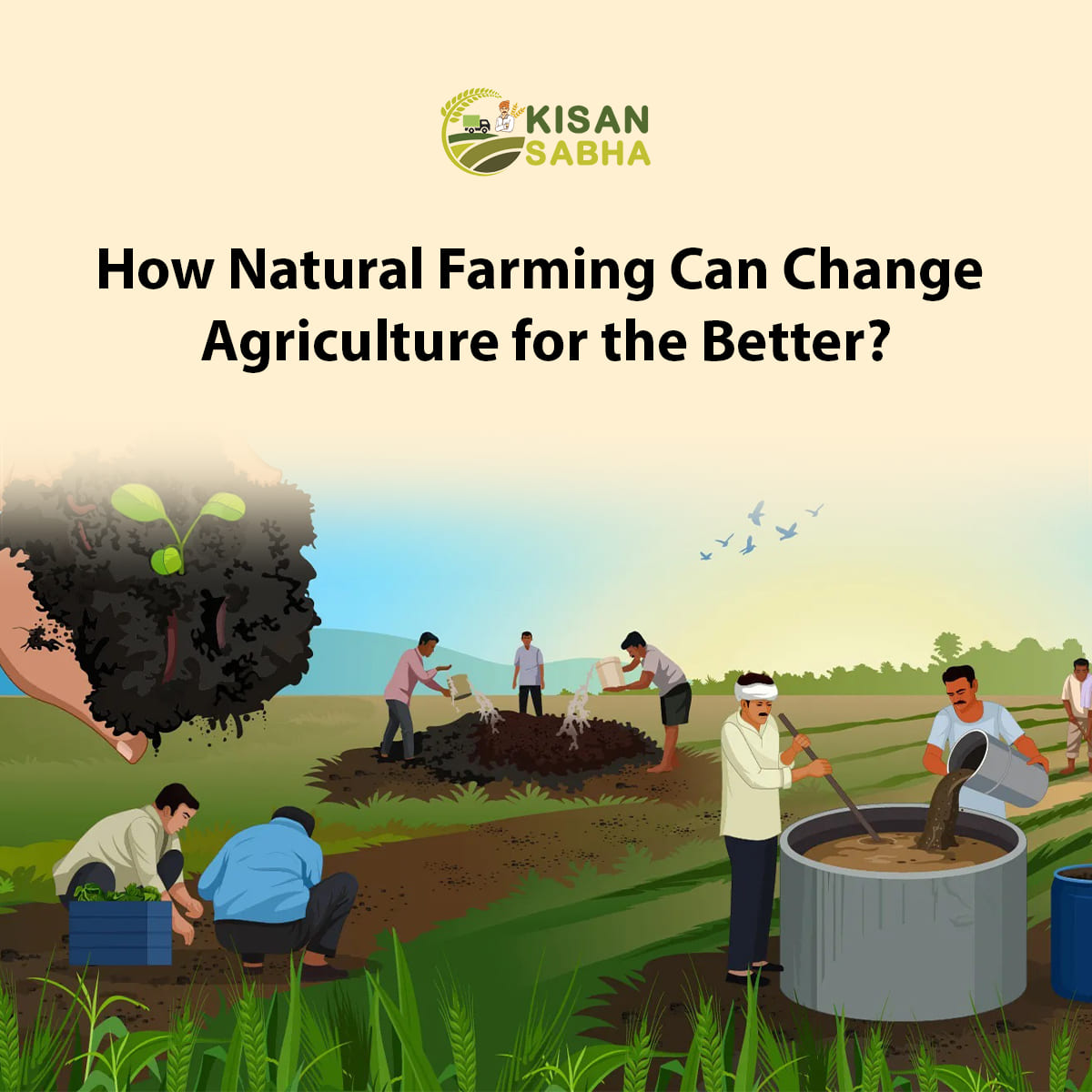Farming plays a vital role in feeding people worldwide. Yet conventional farming practices face numerous challenges. These include environmental harm, soil degradation, and the use of chemicals that pollute our water and air. As we search for improved food production methods, natural farming gains popularity. This approach aims to work in harmony with nature rather than against it. This article explores how natural farming can transform our current agricultural practices. We’ll examine its advantages and implementation strategies.
What is Natural Farming?
Natural farming rests on the belief that nature knows best. Rather than trying to control everything, natural farmers cooperate with the environment. They recognize the interconnectedness of all-natural elements. By adhering to nature’s principles, farmers can produce food sustainably and productively.
Key Principles of Natural Farming
Several important principles guide natural farming:
Promoting Biodiversity
Natural farming supports a wide range of plants and animals. This diversity helps create a balanced ecosystem. The presence of numerous species makes the farm more resistant to pests and diseases.
Minimizing External Inputs
Natural farmers avoid the use of other outside sources to the least possible. As of right now, they use organic agricultural methods instead of artificial fertilizers and pesticides. They include crop rotation, composting, and cover crop planting. They are useful for maintaining the soil’s fidelity and decreasing the usage of chemicals as much as possible.
Enhancing Soil Health
Healthy soils are undoubtedly important for farming activities to be productive. Organic methods enhance soil characteristics of productivity. Thus, Safe Bionutrient Production Practices do not allow the use of toxic chemicals that harm beneficial microorganisms in the soil.
Benefits of Natural Farming
Indeed, natural farming has some benefits for the environment, economy, and society as follows:
Environmental Benefits
Natural farming was also found to play a vital role in the conservation of the environment. It decreases the pollution level of water and air as it tries to eliminate the use of synthetic chemicals. It is also a way of conservation of biological diversity, which plays an important role in the functioning of our ecosystem.
Economic Advantages
Some people believe that natural farming is a little advanced in terms of labor and time but it can be cost-effective in the end. Farmers deny themselves the opportunity to spend a lot of cash on costly chemicals. Soil that has a high Ph has been shown to result in higher yields in crops in the later years. On the other hand, the agricultural sector may face the threat of producing food containing genetically modified organisms, while there is a possibility to start producing goods with organic foods.
Social Benefits
Natural farming helps the farmers to cultivate close relationships with their neighbors and other users in society. This is often the case when farmers engage in sustainable farming and such farming makes the farmers develop a sort of attitude towards conserving the environment. From this awareness, there can be increased community cohesiveness and shared responsibility toward the preservation of the natural environment.
Also Read:- The Important Role of Data-Driven Farming in Safeguarding Food Security
Challenges in Conventional Farming
Agriculture has seen significant advancements throughout the years. Modern farming nowadays makes use of cutting-edge technology, including large machines and specially cultivated crops. These advancements have led to a rise in food production, but there are also serious concerns.
Effects on the Environment
Artificial chemicals like insecticides and fertilizers are frequently used in conventional farming. These chemicals have the potential to degrade soil health and diminish local biodiversity. For example, excessive usage of pesticides might kill pollination-dependent beneficial insects like bees.
Soil Depletion
As years pass traditional farming methods can have a negative impact on soil quality. The earth loses its vital nutrients resulting in decreased fertility. .When soil health declines, it becomes harder to grow healthy crops.
Water Pollution
Farming chemicals can contaminate rivers and lakes affecting our water supply. This pollution can damage fish and other wildlife, and impact our drinking water.
The Need for Sustainable Farming
These challenges highlight the importance of sustainable farming practices. Natural farming provides an answer that cooperates with nature. This approach aims to establish a farming system that benefits the environment and produces food without damaging the planet.
Implementing Natural Farming Techniques
Many farmers assume that a shift from conventional farming to natural farming is out of the question, but it is not.
Overcoming Challenges
Implementing a change in practice can be challenging for farmers. Some of them are likely to think that crops will be destroyed or that they do not know how to do it. But there are many sources to use, and information is in abundant supply. Farmers can extend their learning from local natural farmers, attending or listening to workshops and seminars and gradually transitioning to the new techniques.
Addressing Yield Concerns
Another popular topic of conversation natural farming is not as effective as modern agriculture techniques because we get less yield. Though it may still take some time for the soil to regain, the longest-lasting agricultural production is that of organic farming, research found. However, as for soil health, if farmers approach the right crops productivity can be retained.
Conclusion
Organic farming is not a bubble; it is a new way of carrying out farming activity. Only if we understand what computational thinking is and how it can be useful in the farming industry will we be able to rebuild it and make it better. This method not only feeds our bodies but also helps to conserve our natural resources on the earth. However, in today’s world, farming presents an array of difficulties but choosing the natural approach will help to work towards change. United we will be able to make the necessary changes that will improve our health not just for us but for the generations to come.





